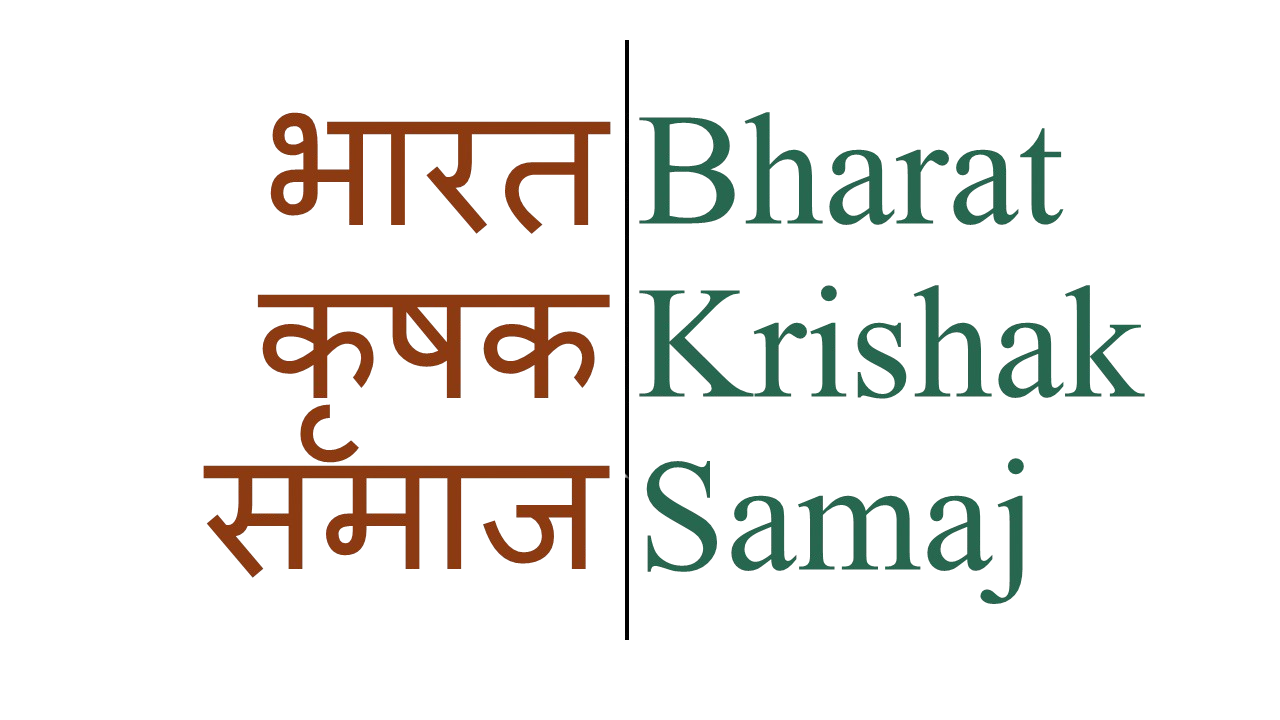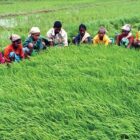The Bharat Krishak Samaj advocated a list of small investments to smoothen the rough edges of farm policies, instead of grand gestures that amount to little.
“We Are Fed Up”, said a banner in a protest in Berlin, against industrialised farming and the planned free-trade agreement between the European Union and the United States. Trade issues resonate with the farming sector across Europe. In India, farmers are oblivious to the inevitable consequences of trade agreements. The government may be keen to address farmer-related problems but success on the farm front can be delusional if long-term objectives are sacrificed for short-term fixes or if the cause of a problem is misunderstood as the consequence of the problem.
The UPA refused to engage with farmers during its 10 years in office. It lost power primarily due to high inflation, stemming from the mismanagement of the farm space. Unlike during the UPA regime, Finance Minister Arun Jaitley called a meeting for pre-budget consultations on agriculture. The Bharat Krishak Samaj advocated a long list of small investments that could smoothen the rough edges of existing policies, instead of grand gestures that amount to little.
The idea was to push investments that would deliver growth and be both economically and environmentally sustainable. The BKS offered a strategic direction to the government to help control food inflation, not by expending extra resources but by mere restructuring of existing allocations. One part of the strategy would be to focus on increasing the production of perishables by identifying geographically distinct districts that have the ideal combination of weather, soil and water.
The idea was to select four districts every year for the next five years, integrate all food impacting government programmes and direct them to these districts; accept farm advisory services offered from Israel, the Netherlands, Germany and such others. Although it is common knowledge that farm extension services have collapsed, its impact on farmers has not been fully grasped.
Under the BKS proposal, the government was required to assign an agriculture graduate as extension agent for every 10 villages and fund a joint mission involving the Small Farmers Agriculture Business Consortium and the National Dairy Development Board to grow and store and also organise controlled distribution of essentials, including onions, potatoes and tomatoes, to ease price fluctuation.
The other part of the strategy would be to extend the white revolution across India. The milk yield of indigenous breeds could be doubled by setting up a regulatory framework that makes artificial insemination available. All farmers must have the option and opportunity to own good milch animals and access veterinary services at the farm gate.
It would also be paramount to optimise agriculture input use. India must target 10 per cent replacement of chemical fertilisers and pesticides by propagating integrated pest management with biopesticides and bio fertilisers. Eighty per of Indian farmers own less than two hectares of land making it unviable for individual farmers to buy farm machinery. Since that has become the primary cause of debt in the irrigated parts, there must be provision for farmers to lease farm machinery services.
Policies that promote horticulture, dairy, poultry and fisheries will not only end malnutrition but also create five times the number of jobs over any other investment. Further, production could be linked to nutrition by focusing on millets and fodder. For example, protein-rich soya could be included in the mid-day meal scheme instead of exporting it as feed.
All exports are not sustainable. The export of rice, for instance, also amounts to export of precious ground water. As international commodity prices crash, the clamour for India to open its borders for high-value, low-volume imports will rise. It is important not to get swayed by the cultivated cacophony in the name of reforms.
Ad hoc measures by the ministry of commerce over the years have caused farmer suicides and the new administration is expected to favour a long-term agriculture exim policy, which will allow farmers to export agriculture produce without any restrictions and impose maximum permissible import duty on perishable products. The concept of self-sufficiency may seem antiquated in times of trade agreements, but the fact remains that the world is neither flat nor fair. It would be naïve to treat food at par with other commodities. Even the EU would agree.
As farmers deliver on production, the government too must create multiple connect points between producers and consumers. It must equally promote food processing and improve access to markets by doubling the number of agriculture market yards. The private sector should be invited to enter the sector in order to ensure competition. Funds allocated for urban infrastructure must be accompanied by a mandatory requirement for cities to allocate space for farmer or Sunday markets in residential areas. Excess production without access to markets will be disastrous. As the saying goes, “When one farmer works hard, he gets rich. When all farmers work hard, all become poor.”
If the government also incorporates the BKS propositions on credit, irrigation and cooperatives, one can look forward to a future where the farmer’s children will be infinitely better off than their forefathers. A failure to do so would lead to the situation cynically portrayed in Berlin at the International Green Week: Which month of the year are farmers upset? The answer is February, the month with the least number of days. It is also the month Jaitley will present his budget. The BKS waits with bated breath.




